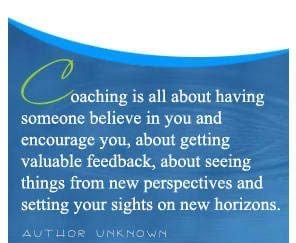Jun 25, 2024 in Life Coaching
8 signs that you are not being Authentic
Authenticity, the key to unlocking genuine human connection and personal fulfillment, is a concept that resonates with us
It's your turn now! Let's support each other by clicking "Helpful".
+1

DISCUSS #Relationship
DISCUSS #Parenting
Authenticity, the key to unlocking genuine human connection and personal fulfillment, is a concept that resonates with us all. It’s about being true to ourselves, aligning our actions with our beliefs, and presenting an honest version of ourselves to the world.
However, in the hustle and bustle of modern life, it’s easy to lose sight of authenticity. We may unknowingly adopt masks or personas to fit societal expectations or to avoid vulnerability.
This blog post will delve into eight signs that might indicate you’re not living authentically.
You Feel Disconnected from Your Emotions:
Authenticity involves acknowledging and accepting one’s emotions, whether positive or negative. If you frequently suppress emotions or feel disconnected from them altogether, it could be a sign that you’re not being authentic. Emotions are valuable signals that provide insights into our inner selves. Ignoring them can lead to inner conflict and a sense of emptiness.
You’re People-Pleasing Constantly:
Constantly seeking validation or approval from others can indicate a need for more authenticity. While it’s natural to want to please others to some extent, prioritizing others’ needs and desires over your own consistently suggests that you’re not being true to yourself. Authenticity involves honoring your values and boundaries, even if it means disappointing others occasionally.
Your Behavior is Inconsistent:
Inauthenticity often manifests as inconsistency in behavior, where you act differently in various situations or around different people. This could stem from a fear of judgment or rejection, prompting you to adapt your behavior to fit in or avoid conflict. However, genuine authenticity means staying consistent with your values and principles across different contexts.
You Struggle with Self-Acceptance:
Authenticity begins with self-acceptance — embracing your strengths, weaknesses, quirks, and imperfections. If you find yourself constantly criticizing or trying to change aspects of yourself to meet external standards, it’s a sign that you’re likely not being authentic. But remember, true self-acceptance involves embracing your uniqueness and being comfortable in your own skin, which can empower you to live a more authentic life.
You Lack Clarity About Your Values:
Authentic living requires a clear understanding of your values — the principles and beliefs that guide your actions and decisions. Suppose you’re unsure about what truly matters to you or find yourself compromising your values to please others. In that case, it’s a sign of inauthenticity. Take the time to reflect on your core values and ensure that your choices align with them.
You Struggle to Set Boundaries:
Boundaries are essential for maintaining authenticity and preserving one’s well-being. You may need more authenticity if you constantly say yes when you mean no or allow others to overstep your limits. Setting clear boundaries is an act of self-respect and demonstrates a commitment to honoring one’s needs and values.
You’re Living According to Societal Expectations:
Society often imposes norms and expectations that may not align with our authentic selves. Suppose you live your life based on societal expectations rather than true desires and aspirations. In that case, you’re likely not being genuine. Authenticity involves challenging societal norms and forging your path, even if it means deviating from the status quo.
You Experience a Persistent Sense of Discontent:
Inauthentic living can lead to a persistent sense of discontent or inner turmoil. Despite external success or accolades, you may feel unfulfilled or empty inside. This dissatisfaction is often a sign that you’re not living in alignment with your true self. Authenticity brings peace and fulfillment from living in harmony with your values and purpose.
Living authentically is an ongoing journey that requires self-awareness, introspection, and courage. Recognizing these signs of inauthenticity and taking steps to realign with your true self cannot only cultivate deeper connections and greater fulfillment but also lead to a more meaningful life. Embrace authenticity, and witness the remarkable transformation in your life as you start living in harmony with your values and purpose.
Journaling can be a powerful tool for self-reflection and personal growth.
Here are five questions to help you explore the topic of authenticity further:
- Reflect on a recent situation where you felt compelled to act in a way that didn’t align with your true self. What were the internal and external factors influencing your behavior? How did you feel during and after the experience?
- Consider a time when you experienced a deep sense of authenticity — when you were fully aligned with your values and beliefs. What circumstances allowed you to be authentic in that moment? How did it impact your emotions, relationships, and overall well-being?
- Take inventory of your core values and beliefs. Do you compromise on or neglect values in some areas of your life? How can you realign your actions and choices to reflect your authentic self better?
- Think about the role of vulnerability in authenticity. What fears or insecurities might be holding you back from showing up authentically in your relationships, work, or personal pursuits? How can you embrace vulnerability as a strength rather than a weakness?
- Imagine your ideal, authentic self — the person you aspire to be when fully aligned with your values and purpose. What steps can you take today to move closer to that vision? What obstacles or challenges might you encounter along the way, and how can you overcome them?
These journaling prompts are designed to help you deepen your understanding of authenticity, identify areas for growth, and chart a path toward living a more authentic and fulfilling life.
Practical steps to becoming more authentic in daily life
It involves a combination of self-awareness, self-acceptance, and intentional action. Start by engaging in regular self-reflection through journaling, meditation, or simply taking moments of quiet introspection. Identify your core values and beliefs and strive to consistently align your actions with them.
Practice setting boundaries and saying no when necessary, honoring your needs and desires without seeking validation from others.
Cultivate vulnerability by embracing imperfection and sharing your thoughts and feelings with trusted individuals. Finally, be willing to take risks and step outside your comfort zone, allowing yourself to authentically express yourself and pursue what truly matters to you.
Remember that authenticity is a journey, and each small step you take brings you closer to living a life that is genuine, meaningful, and true to yourself.
Self-awareness and action are critical in the journey towards authenticity. If you’ve recognized any signs discussed in this post, remember, you’re not alone. Each of us faces moments of inauthenticity, and it’s how we respond to them that defines our growth.
My Personal Journey: Overcoming Perfectionism, Imposter Syndrome, and Embracing Authenticity
As I’ve navigated the intricate path toward authenticity, I’ve encountered my fair share of hurdles. Perfectionism, imposter syndrome, and the relentless pursuit of being “enough” have long been companions on my journey.
For years, I found myself ensnared in the trap of perfectionism, constantly striving for flawlessness in every aspect of my life. Whether professional achievements, personal relationships, or creative endeavors, the fear of falling short haunted me, leading to relentless self-criticism and dissatisfaction.
Imposter syndrome, too, cast a shadow over my aspirations. Despite external validation and accomplishments, I harbored a persistent fear of being exposed as a fraud, doubting my competence and worthiness. This inner conflict fueled a cycle of self-doubt and insecurity, hindering my ability to authentically express myself and pursue my passions.
Amidst these challenges, the journey towards authenticity has been anything but linear. It’s been a process of self-discovery marked by moments of vulnerability, courage, and resilience.
Through introspection and reflection, I’ve learned to recognize the harmful patterns of perfectionism and imposter syndrome, gradually releasing their grip on my psyche.
Embracing authenticity has meant embracing imperfection — acknowledging my flaws, vulnerabilities, and inherent humanity. It’s been about challenging societal norms and expectations and forging my path based on my values and aspirations rather than succumbing to external pressures.
Today, as I continue to navigate this journey, I’m reminded of the profound transformation that comes from embracing authenticity. It’s not about having all the answers or achieving some idealized version of myself; it’s about showing up as my true, imperfect self — flawed yet inherently worthy.
I’ve discovered a newfound sense of liberation and empowerment through vulnerability and self-acceptance.
I’ve learned to celebrate my successes, embrace failures, and cultivate genuine connections based on honesty and authenticity.
Though the road may be challenging, I’m committed to embracing authenticity in all its messy, beautiful complexity. I’m grateful to have embarked on this journey of self-discovery and self-compassion daily.
Through sharing my experiences and insights, I hope to inspire others to journey towards authenticity, embrace their true selves, and live lives of purpose and fulfillment.
My purpose in life is to empower as many women as possible to live freely, making decisions from a place of freedom and authenticity.
I aim to support women in breaking free from societal constraints, encouraging them to discover and express their true selves, ultimately leading lives that are genuinely fulfilling and self-directed.
Free accessible sources to start to work on your to work on your perfectionism, and start to create new habits:
- Download your free copy of Journey of Self-Discovery: Unveil Your Authentic Self now and take the first step towards unlocking your true potential. This guide is packed with insights, practical strategies, and hands-on exercises designed to help you explore and embrace your authentic self.
- Rise & Shine is an email course on setting goals and taking action, creating routines for your well-being, and developing a mindset to win. I made it a process for myself when my imposter syndrome peaked, and I procrastinated. This process helped me start taking action to get back on my feet.









 Thank you for your help!
Thank you for your help!